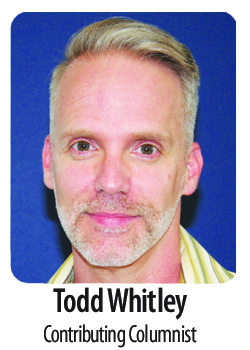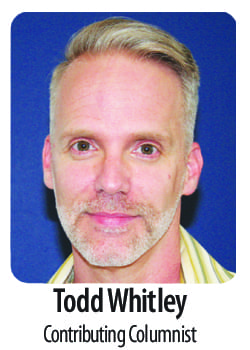 Matthew was tied to a fence in rural Wyoming after being pistol-whipped and tortured — left to die. The moment we heard about his death, long before it was ever classified as a hate crime, in the very pits of our stomachs we knew that’s exactly what it was.
Matthew was tied to a fence in rural Wyoming after being pistol-whipped and tortured — left to die. The moment we heard about his death, long before it was ever classified as a hate crime, in the very pits of our stomachs we knew that’s exactly what it was.
But some voices, apparently unfazed by the horror of the crime, tried to rationalize that he must have created “gay panic” by coming onto his attackers.
Bryan’s unconscious, battered body was found in the Castro near dawn, badly beaten. Days later he was removed from life support.
While some suggested he was probably just a victim of robbery, the immediate watery eyes and shudder felt by gays and lesbians evoked a knowing that something far more sinister caused his death.
Marichuy, a transgender woman detained among men in an Arizona immigration detention center, was raped — even after she had reported being harassed, bullied and threatened with rape.
Many suggested she got what she deserved for her non-normative gender expression. Others, as is the case for many women who are raped, speculated about what she must have done to deserve it.
Those who have themselves survived such crimes wept aloud — or they wept quietly, alone.
Michael, an unarmed young, black man of considerable stature, was gunned down by a police officer in Missouri.
Many quickly labeled the killing as justified, because the young man might have stolen something earlier in the day, or because he probably did something to deserve it — while the hearts of the black community broke. Again.
“Why is any of it OK? And why aren’t we out in the streets in anger any time it happens?” a friend demanded passionately.
I agree: Why aren’t we?
Again and again, statistics tell us the plain, ugly truth: Not all of us live on equal footing.
It is no secret that transgender people, lesbians and gays are not on equal footing with heterosexuals. Crimes against LGBT people weren’t even classified as hate crimes until 2009.
Even more disconcerting, LGBT people of color are more likely to experience violence than white LGBTs. In its report “Hate Violence Against Lesbian, Gay, Bisexual, Transgender, Queer and HIV-Affected Communities in the United States in 2013,” the National Coalition of Anti-Violence Programs reported almost 2,000 hate crimes targeting LGBTQH people from just 13 states reporting. The statistics show us an even more hateful reality: Hate crimes disproportionately impact transgender women, LGBTQ, and HIV-affected communities of color, transgender people, and transgender people of color.
And we know, with and even without statistics, that heterosexuals just aren’t as concerned about crimes against us as we are. (One word: AIDS.)
Non-whites — in particular, African-Americans — are disproportionally imprisoned and killed compared to their white counterparts. At least five unarmed black men were killed by police in the last month alone. Of the people serving in state prisons for drug offenses, 45 percent are black, compared to 30 percent that are whites. Whites use coke more, have tried pot, hallucinogens, Oxycontin and methamphetamines more than non-whites, and yet blacks are arrested for drug possession three times more often than whites.
Black men in particular smoke pot no more than white men, yet they’re significantly more likely to be arrested for it.
And we know, with and even without statistics, that whites are nowhere near as engaged on these issues as individuals in the black community.
We may differ in experiences, theory, opinion or mode of expression, but considering all our communities have in common, why is there not more solidarity the LGBT community and the black community? Why is one marginalized community not rushing to stand by the side of the other?
Now, if experience has taught me anything, it’s that reacting first, without gathering facts, is not always beneficial — not that I consistently heed said experience. But we know some things without having to know “the facts.” We know some things in our hearts.
We know, for example, that when a LGBT person is refused service by an EMT, or a transgender person is fired from a job, there is some underlying cause at play. Many of us who might share some similar experience don’t stop to ask what the individual did to deserve such treatment. Many who do not share the experience automatically judge them unworthy or remain indifferent.
So when a community that knows oppression receives news of yet another apparent injustice, they, like we, react — out of pain, out of fear, out of sheer anger and distrust.
I know we will never know for certain the circumstances in those final moments when Matthew, Bryan, and Michael were killed, no more than we will know what was in the mind of the men who hurt and killed them. But we know — even without evidence — hate won the moment they died.
And until we stand up to injustice, all of us together, hate will maintain a foothold in our hearts, our cities, our country.
Injustice against one is injustice against all — whether or not we look alike or love the same gender.
Todd Whitley is a local activist who can usually be found tweeting (@toddwhitley), holding a picket sign, thrift store shopping, or eating Tex-Mex. Read his blog at tdub68.wordpress.com.
This article appeared in the Dallas Voice print edition August 29, 2014.











